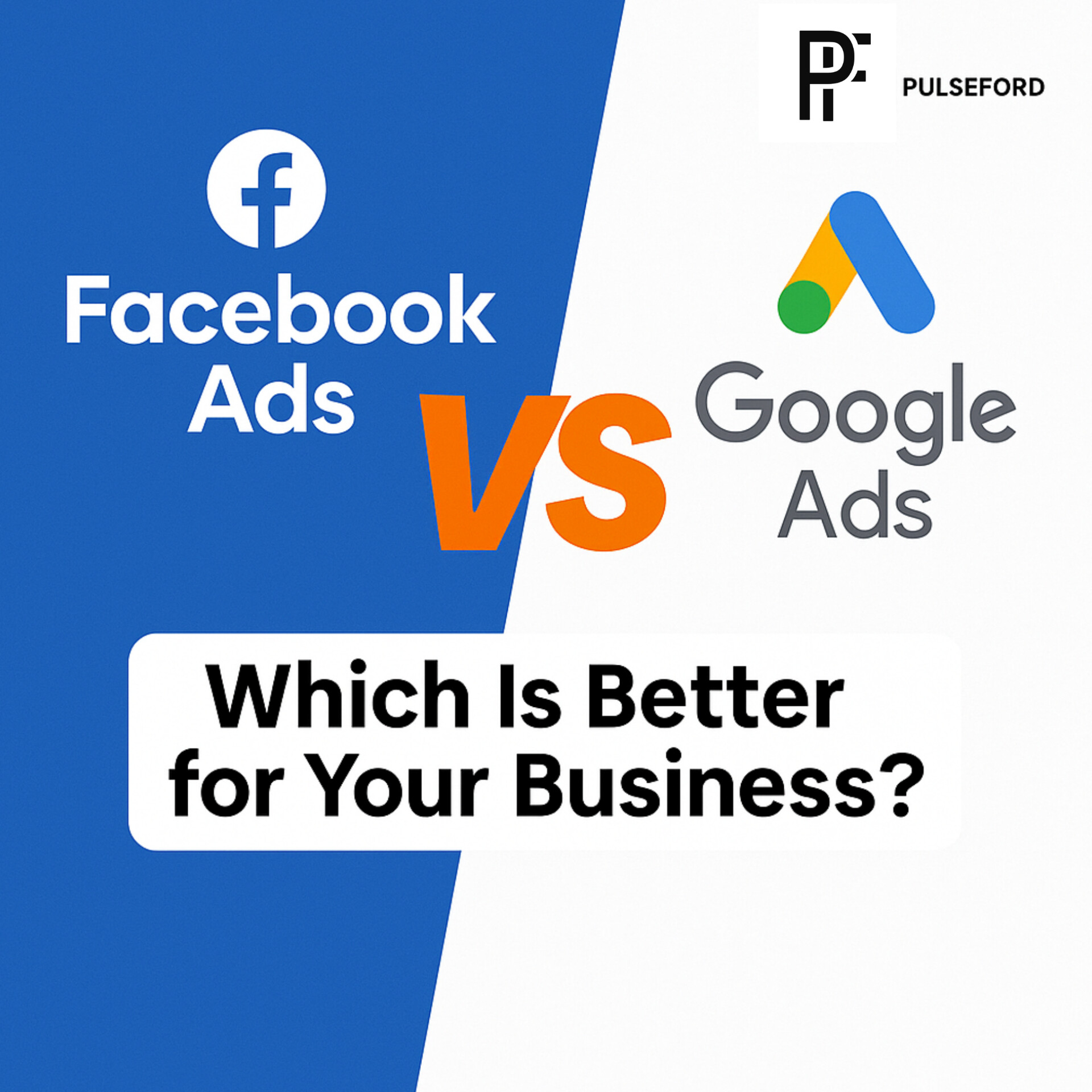


In today’s digital-first economy, paid advertising is one of the fastest ways to get your brand in front of potential customers. But a question many business owners ask is: Should I invest in Facebook Ads or Google Ads? Which platform delivers the best ROI and aligns with my business goals?
As a leading digital agency in Nigeria, we’ve helped dozens of brands grow using both platforms. In this article, we’ll break down the key differences between Facebook Ads and Google Ads, their strengths, and how to decide what’s right for your business.
Facebook Ads (now under Meta) focuses on social advertising. It shows your ads to users while they’re scrolling through Facebook, Instagram, Messenger, and WhatsApp.
Google Ads (formerly Google AdWords), on the other hand, is a form of search engine advertising. It places your ads on Google Search, YouTube, and the Google Display Network, based on what users are actively searching for.
Google Ads = Intent-Based People searching on Google already have an intention to find something — they’re actively looking for products, services, or answers. This is powerful when your goal is direct sales or leads.
Facebook Ads = Interest-Based With Facebook, you can target people based on interests, behaviors, demographics, and even life events. This is great for building awareness or nurturing cold audiences into warm leads.
Facebook Ads are more visually engaging. You can run image carousels, short videos, story ads, and more. Perfect for brand storytelling, product showcases, and retargeting campaigns.
Google Ads are mostly text-based (for search) and banner/video ads (for display & YouTube). If you’re offering a solution to a problem, Google is where buyers go to find it.
Facebook Ads generally have a lower Cost-Per-Click (CPC) than Google Ads. But lower CPC doesn’t always mean better ROI — it depends on your goals.
Google Ads may cost more per click, especially for competitive keywords, but it often drives high-converting traffic with strong purchase intent.
| Goal | Best Platform |
|---|---|
| Brand Awareness | Facebook Ads |
| Lead Generation | Both (Facebook + Google) |
| E-commerce Sales | Google Shopping + Facebook Dynamic Ads |
| Local Business Promotion | Google Ads with local targeting |
| App Installs | Facebook Ads (especially Instagram) |
| Retargeting Visitors | Facebook & Google Display Network |
Both platforms provide real-time insights into ad performance. But to fully optimize your campaigns, you need a data-driven strategy, A/B testing, and retargeting tactics — that’s where Pulseford comes in.
If your audience is actively searching for your service, Google Ads is a no-brainer.
If you’re trying to build brand loyalty or attract a new audience, Facebook Ads may give you better results.
But the truth is: Most successful brands use both platforms together for a full-funnel digital marketing strategy — building awareness on Facebook and closing the deal on Google.
At Pulseford, we specialize in crafting custom ad strategies that drive real results, not just impressions. Whether you want to dominate Google search results, go viral on social media, or both — our team of experts will make sure your ad spend delivers maximum return.
© 2025 Pulseford. All rights reserved.